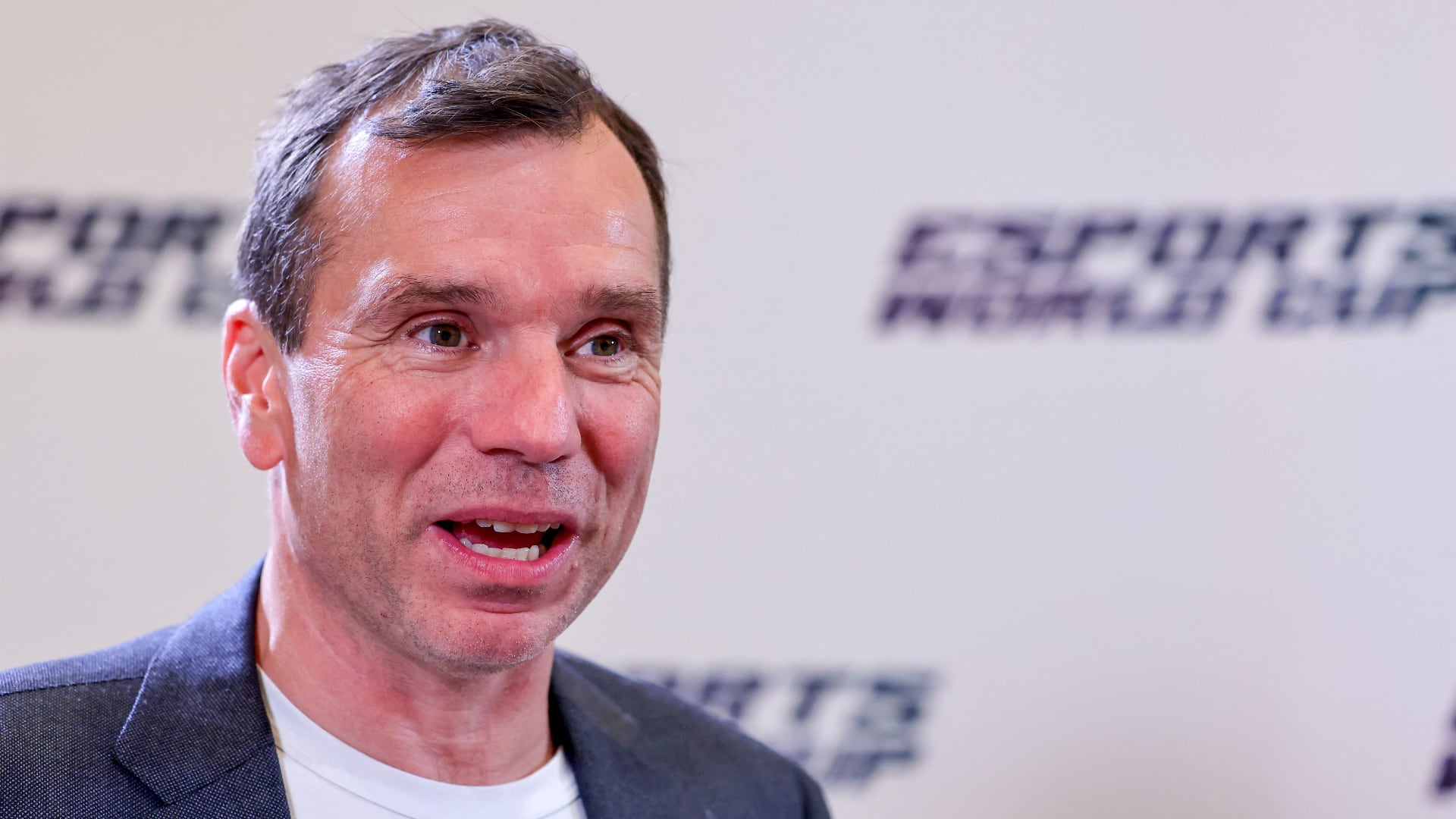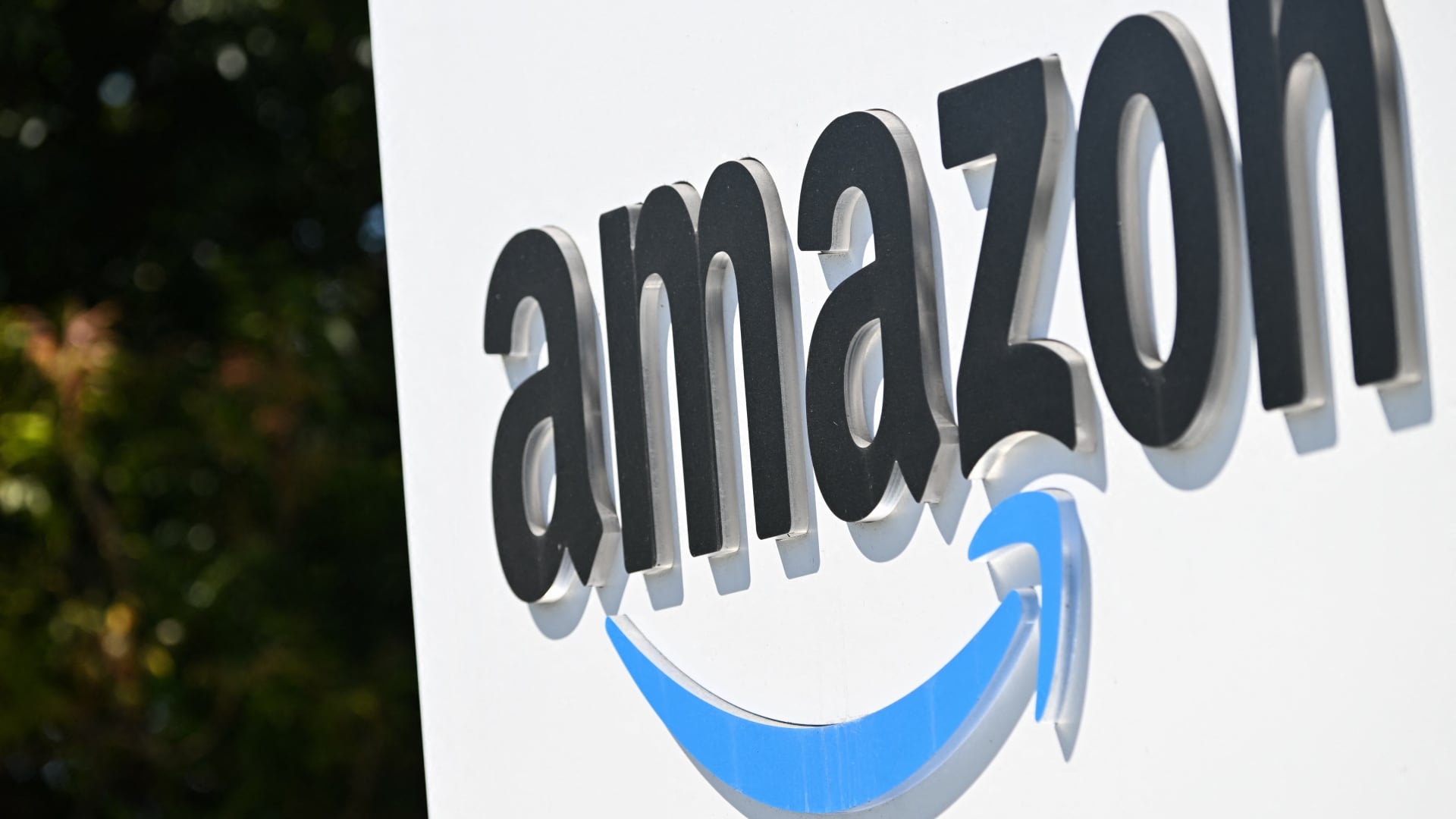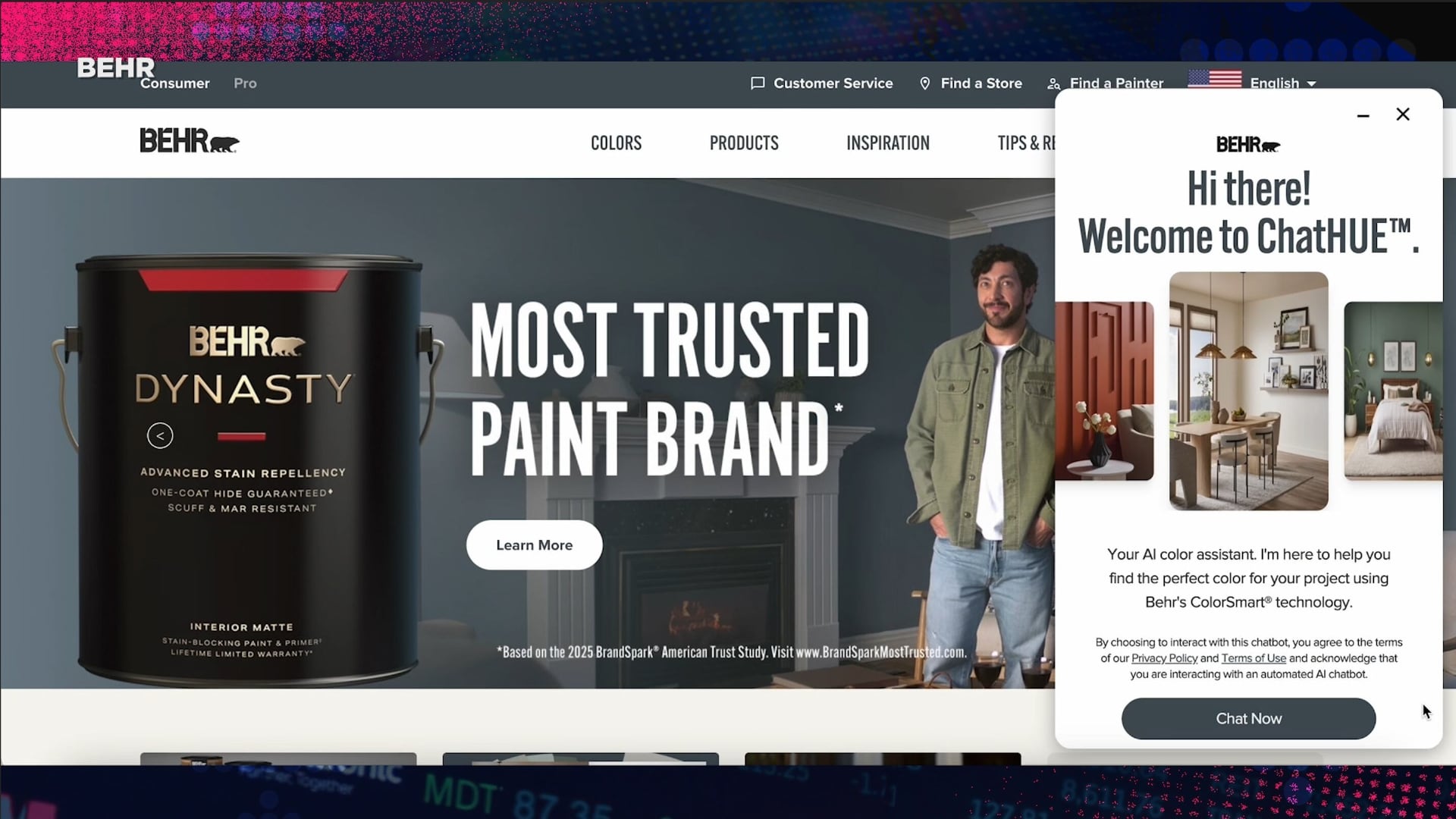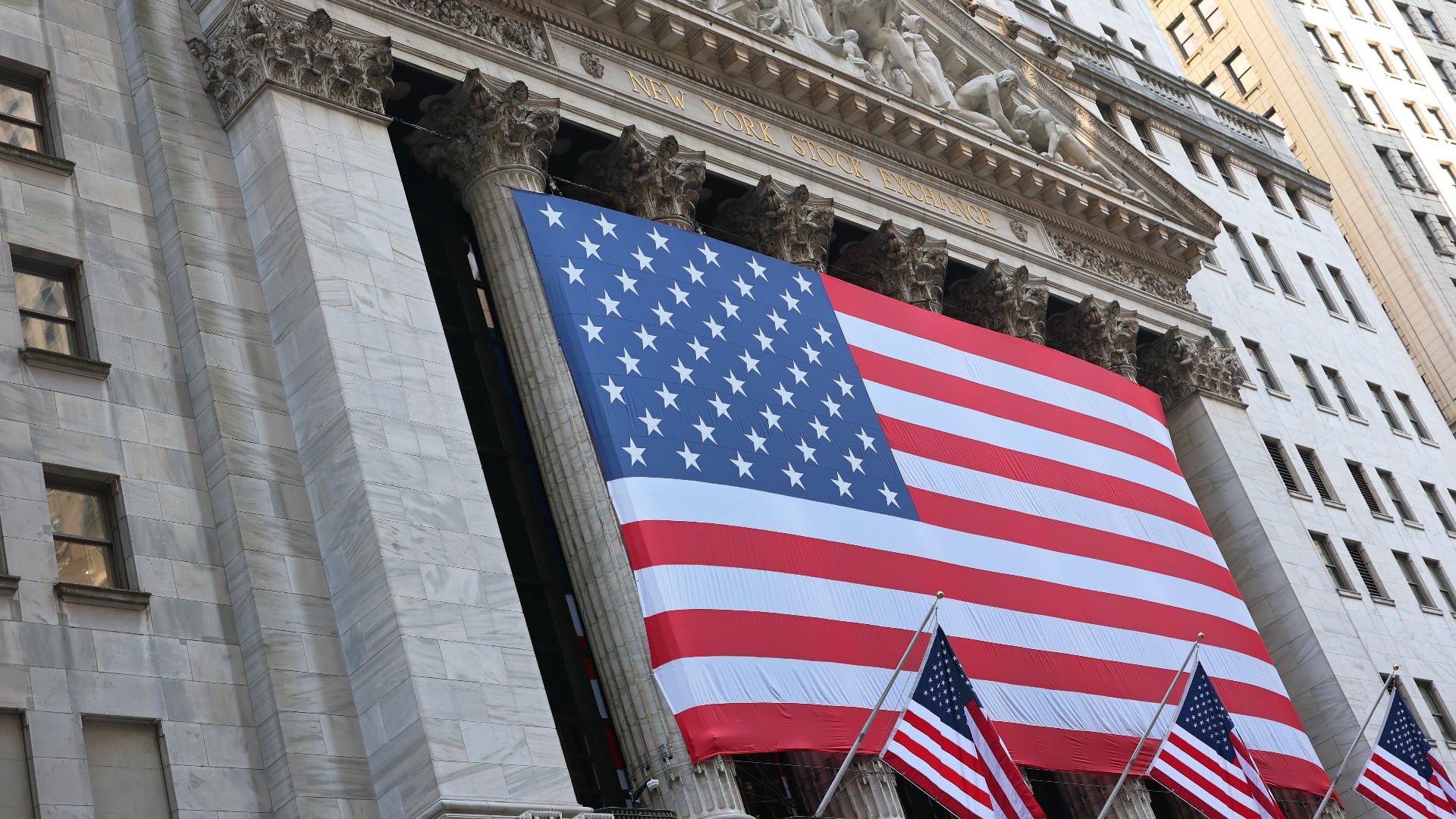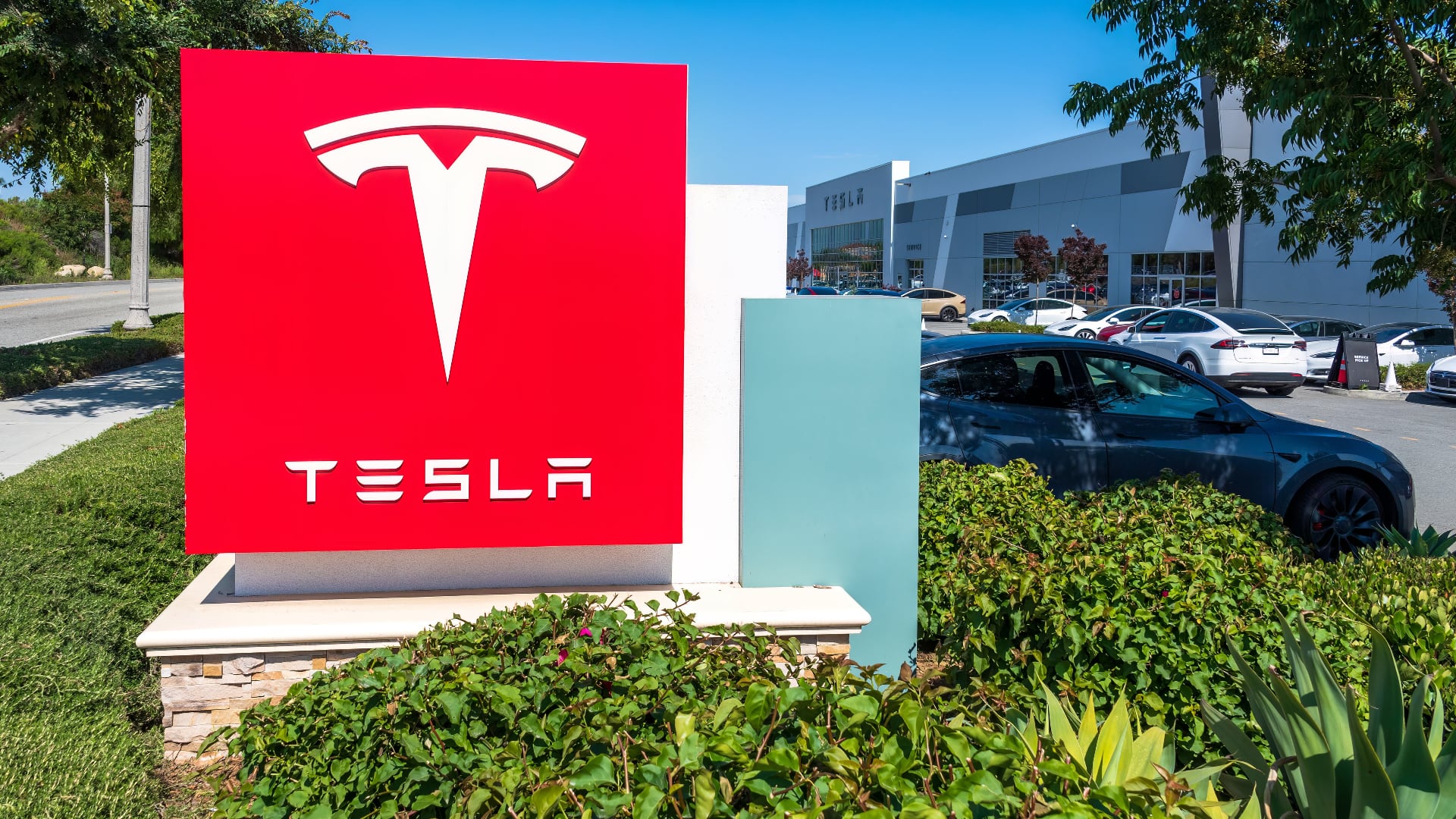*By Chloe Aiello* Amazon shares tumbled about 2.4 percent after the e-commerce giant reported mixed earnings and revenue after the bell on Thursday. Amazon ($AMZN) reported earnings per share of $5.22 on revenue of $63.4 billion. Analysts surveyed by Thomson Reuters had expected EPS of $5.57 on revenue of $62.48 billion. Despite the bottom-line miss, earnings were up from the $5.07 per share Amazon reported in the year-ago quarter and revenue surged close to 20 percent. In terms of guidance, Amazon said it anticipates third quarter revenue of $66 billion to $70 billion, surpassing analyst expectations of $67.3 billion, according to Refinitiv. Amazon's revenue growth has decelerated in recent quarters, [down to about 17 percent growth in the first quarter](https://cheddar.com/media/amazon-q1-earnings), compared with 20 and 40 percent gains in previous years. Experts mostly attribute the slowdown to the law of large numbers, but Thursday's report shows a return to a healthier rate. Amazon's rebound to revenue growth in the second quarter didn't come without cost. The e-commerce giant invested $800 million to launch one-day shipping for Prime customers in an effort to keep competitive against rivals like Target and Walmart. CFRA director and senior equity analyst Tuna Amobi said he had expected the sizable investment to pinch Amazon's earnings, and said that investors should anticipate more infrastructure investment ahead. "You can expect a lot of investments on delivery and other initiatives that are meant to make the Prime membership much more sticky," he added. "Investors, I think, can expect that while we are not going back to the heightened levels of investment over the past few years, I think they are definitely ratcheting up their core investments: logistics fulfillment, video, content, hardware devices, things of that nature." Prime Day results also showed in the quarter. Amazon bragged that its annual shopping extravaganza, which spanned two days this year, was "once again" its largest ever shopping event, eclipsing sales on both Black Friday and Cyber Monday combined. The company also reported that the days attracted more member signups than any other days in its history. "Customers are responding to Prime's move to one-day delivery — we've received a lot of positive feedback and seen accelerating sales growth," Amazon CEO and founder Jeff Bezos said in a statement. For its cloud business, Amazon Web Services (AWS), the tech company reported sales of $8.38 billion, a 37 percent jump from the $6.11 billion it reported last year. Prior to the release of Amazon's report, Amobi had said less than 40 percent growth for the business would be shocking. "We know that business has been growing, although the growth seems to be decelerating. I'd say anything less than 40 percent growth there would be an eye catcher," he said. AWS has managed to maintain the lead in the race toward cloud dominance, ahead of rivals like Google ($GOOGL), IBM ($IBM), and Microsoft ($MSFT). But Microsoft's Azure is gaining ground. When the technology company reported earnings last week, it reported 64 percent growth in Azure's revenue, [according to CNBC](https://www.cnbc.com/2019/07/25/aws-earnings-q2-2019.html). Amazon was last down 2.4 percent at $1,927.50 per share.

